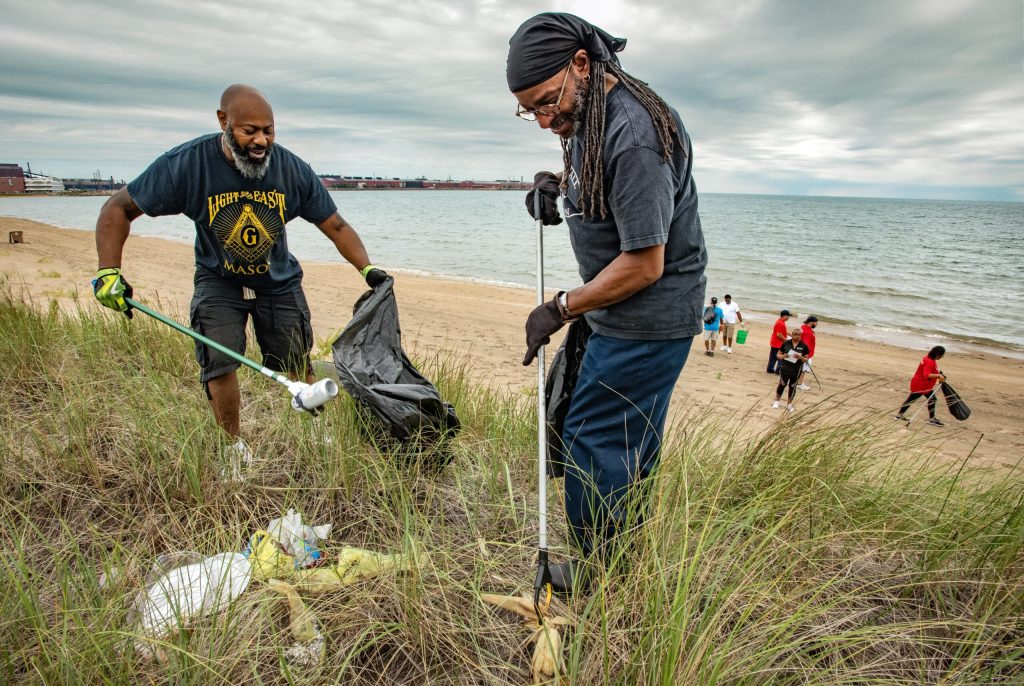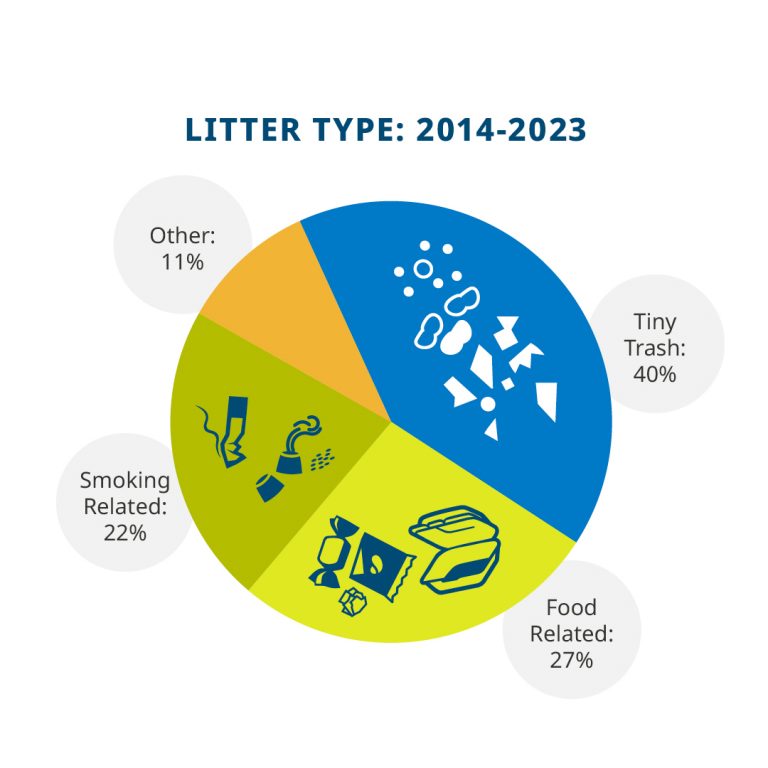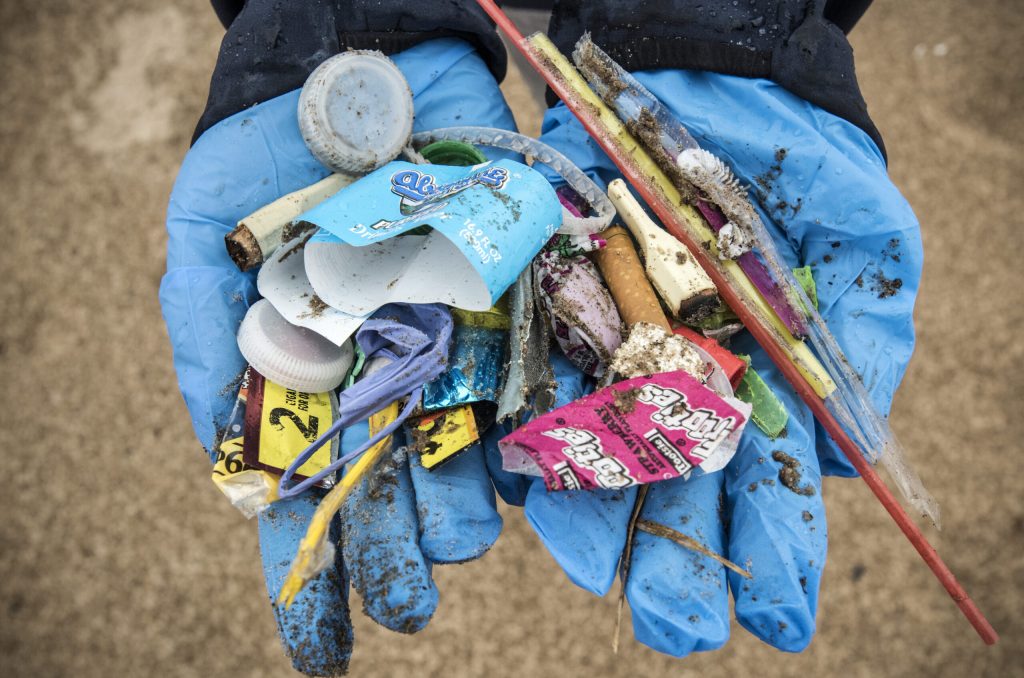Plastics Are Majority of Great Lakes Litter
Data from 14,000 beach cleanups shows tiny pieces of plastic are most common type of trash.

Volunteers for Alliance for the Great Lakes collect trash along a Great Lakes shoreline. (Lloyd DeGrane/Courtesy of Alliance for the Great Lakes)
A new report from an environmental advocacy group found tiny pieces of plastic were the most common type of litter found on Great Lakes shoreline.
The Alliance for the Great Lakes collected data on the types of trash picked up during more than 14,000 volunteer-led beach cleanups over the last 20 years. The data was collected from all five Great Lakes and the states that border them, including Wisconsin.
“Things like food wrappers, straws, plastic water bottles,” said Olivia Reda, volunteer engagement manager for the group and author of the new report. “Things like cigarette butts have plastic in them … There’s a lot of things that are very familiar to most people.”
More than a third of all litter collected has been “tiny trash,” pieces of plastic, foam or glass measuring 2.5 cm or less. These plastic pieces were the most common item logged by volunteers over the last decade, followed by cigarette butts, tiny foam pieces, plastic bottle caps and food wrappers.

Average percentage of litter collected in a year from 2014-2023. “Tiny trash” includes pieces of foam, glass, and plastic that are less than 2.5 cm. (Courtesy of Alliance for the Great Lakes)
Reda said the prevalence of plastic litter is a problem for both the environment and human health. As the products break down into smaller pieces, the microplastics can make their way into wildlife and human bodies. Studies have already found the tiny plastic pieces in everything from the human gut and to earthworms.
She said the prevalence of plastics over two decades of data is strong evidence that plastic pollution is a major problem on the Great Lakes, going beyond the need for changes in consumer habits.
The report calls for systemic changes around the use and management of plastics, from the federal to the local level.
“We need the government and plastic producers to join the fight,” Reda said. “We need to reduce the production of single-use plastic and also hold plastic producers responsible for the waste that their products generate.”
These regulations, referred to as Extended Producer Responsibility policies, have been adopted in Europe, Canada and a handful of U.S. states including California, Colorado and Oregon.
A study published last year by researchers at Iowa State University found that locations with these policies had more effective recycling programs.

Litter picked up during a volunteer beach clean-up hosted by the Alliance for the Great Lakes. (Lloyd DeGrane/Courtesy of Alliance for the Great Lakes)
Report: plastics make up majority of litter in Great Lakes was originally published by Wisconsin Public Radio.
If you think stories like this are important, become a member of Urban Milwaukee and help support real, independent journalism. Plus you get some cool added benefits.





















